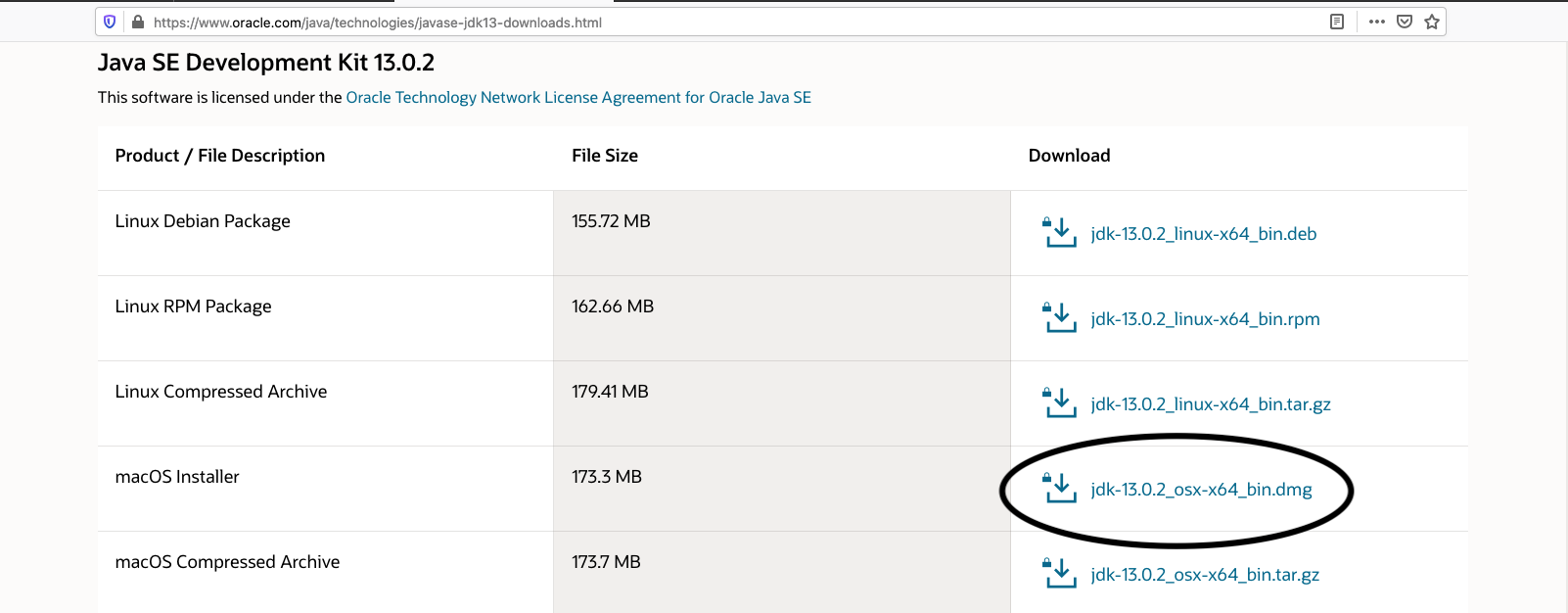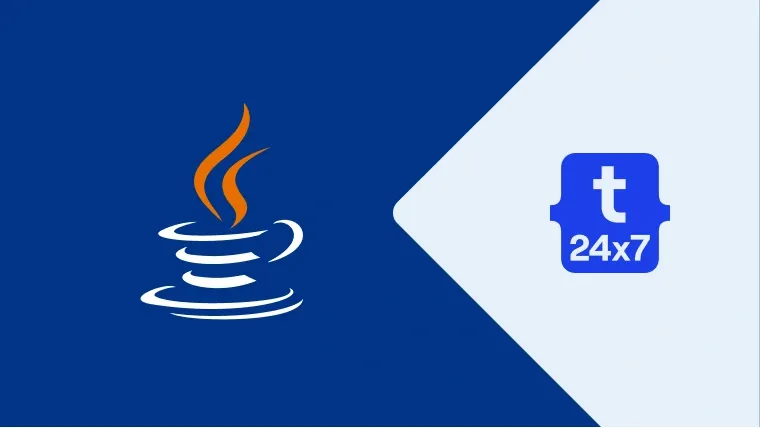In this tutorial, we will discuss how to install Oracle Java 13 on Mac systems. It provides the steps required to install Java 13 on macOS Catalina. The steps should be the same for other versions of macOS including Sierra, High Sierra, and Mojave.
System Checks
In this step, we will test whether Java is already installed or not. To do so, open the terminal and type java -version as shown in Fig 1. It shows that Java is already installed on my system.

Fig 1
Now press the OK Button to hide the dialog. It might show the message - "No Java runtime present, requesting install" in absence of Java and also opens a dialog to know more about it as shown in Fig 2.

Fig 2
Download Java 13
Open the download link to select the available versions as shown in Fig 3. Also, go through the new Oracle JDK License started since April 16, 2019.

Fig 3
Click the Download Option as highlighted in Fig 3. It will ask to accept the License Agreement before starting the download as shown in Fig 4 and Fig 5. It might also ask to login to Oracle before starting the download.

Fig 4

Fig 5
Install Java 13
Double click the DMG file downloaded in the previous step to start installing Oracle JDK 13 on Mac. It will mount the DMG disk and shows the installer as shown in Fig 6 and Fig 7. Make sure that you have gone through the updated License Agreement of Oracle JDK.

Fig 6

Fig 7
Now double-click the installer to start installing Java 13 on Mac.
macOS Catalina - With the release of macOS 10.15, Apple introduced security checks used by the Gatekeeper to verify the content of distributed software. The Gatekeeper might show a security error. You may refer to How To Install Java 8 On Mac to resolve this issue.
The installer shows the Welcome Screen as shown in Fig 8.

Fig 8
Click the Continue Button to start the installation. It provides options to choose the installation type as shown in Fig 9.

Fig 9
You may change the installation location by clicking the Go Back Button. It did not allow me to change the installation location on macOS Catalina. Now click the Install Button to start installing Java 13 on Mac. It also asks for permission to complete the installation as shown in Fig 10.

Fig 10
It shows the success message after completing the installation as shown in Fig 11.

Fig 11
Now unmount the DMG image by right-clicking it as shown in Fig 12.

Fig 12
We can check the JDK version to confirm the installation as shown in Fig 13.

Fig 13
This is all about installing Oracle JDK 13 on Mac systems including macOS Sierra, High Sierra, Mojave, and Catalina.
Switch JDK
It might be required to switch the active Java in case multiple JDKs are installed on the same Mac machine. You can follow How To Switch Java Version On Mac.
Getting started with Java - Hello World
In this step, we will write, compile, and execute our first program in Java using the standard Hello World example.
Now write the first Java program as shown below, save the program as HelloWorld.java and exit the editor. Make sure that the class name and file name are the same.
class HelloWorld {
public static void main( String[] args ) {
System.out.println( "Hello World !!" );
}
}Now open the command prompt and navigate to the path where you have saved your Java program. Use the below-mentioned commands to compile and execute the program.
# Compile - Specify file name and extension javac HelloWorld.java
# Execute - Spicy file name
java HelloWorld
# Output
Hello World !!
These are the easy to install steps required to install Oracle JDK on Mac and write, compile and execute the first Java program.
Summary
This tutorial provided all the steps required to install Oracle JDK 13 on Mac and also provided the steps required to compile and run the first Java program using a simple Hello World program.

